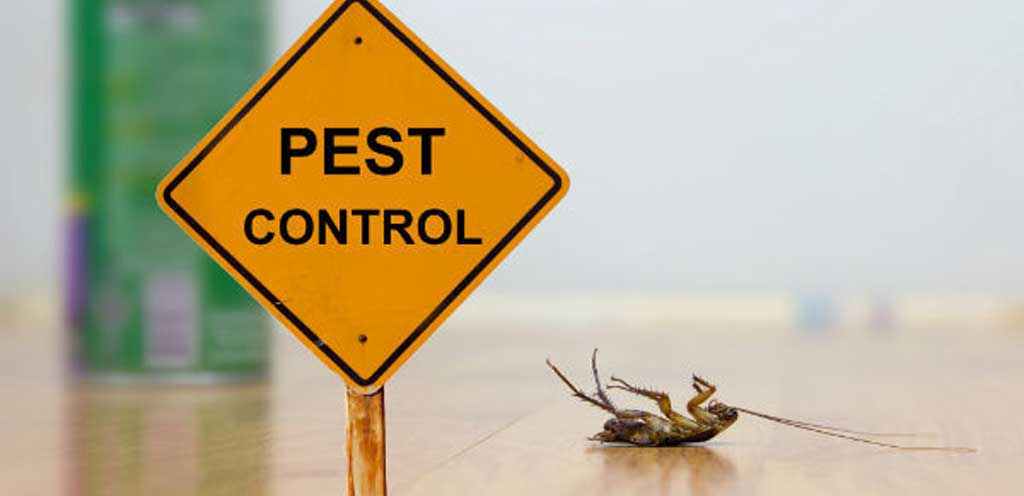Food Safety: The Importance of Pest Control
All living things strive to survive, but unfortunately the needs of other creatures sometimes conflict with our needs. An example of this conflict is the struggle between pests and human. They eat and infect our food, make us sick by transmitting disease and they could also destroy our property and business. An effective form of pest control is essential if we're going to win the battle with pest organisms.

All cockroaches develop by completing a three distinct stages life cycle consisting of: egg, nymph, and adult. The total lifespan of a cockroach varies, but usually range from 3 to 4 months to 2 years. Can you image that a cockroach can last in your premise for 2 years? And along the way they may infest new generations. Hence, without a proper pest management, this will be a huge problem for your business! Kitchen or food production facilities are among the place that the pest can infest easily. Pests can be carriers of harmful diseases. Their presence poses a serious health hazard to consumers because they can contaminate with their urine, droppings, and hair. Without pest control management, your food production and storage areas may be at risk.Rats, mice, flies, ants, and cockroaches are the most common pests that can chew up your business especially food business. As soon as they enter your food facility, the damage they cause can be massive, such as:
Property damage
Spread of disease
Loss of public confidence
Business closure
Where do pests hide?
Pests are generally attracted to food premises as they can provide shelter, water and a food source. Pests are most active at night and hide in dark places, including:
Under and behind electrical, heating and cooking appliances
Under washing and hand washing facilities
Under and in boxes, packaging and food storage containers
Inside wall cavities
In cracks and crevices
Behind equipment
To–do list on how to prevent pest entry / pest harbourage in the food premise.
Among the practicable measures:
1. Prevent pests entering the food premises
sealing all holes, gaps and cracks in walls and ceilings
installing screens to windows and door openings
keeping doors closed at all time
installing door stopper at the base of doors
Regular checks for signs of pests
Maintaining the food premises and equipment in a clean condition (a cleaning schedule may assist)
Keeping food covered in sealed containers
Storing food, equipment and food containers above the floor
Keeping garbage storage areas clean and tidy
Removing rubbish regularly and making sure that external areas (outside bin areas) are clean and well- maintained
Removing unused equipment and fixtures from the premises
Implementing a suitable pest control program which may require the services of a licensed pest controller.
Last but not least, the most practicable and easiest method to control pest infestation and pest harbourage is by choosing a licensed pest controller for your premise. As they are more expert and have more experienced than us in this field. Thus you can save your time and energy and have confidence for your business.
Customers appreciate cleanliness. If a dining space or food prep area is clean, customer confidence in your business’ hygienic and sanitation practices rises.
Safe, delicious food signals you care about the welfare of your customers. Clientele loyalty is increased.
Practicable measures to prevent entry of pests include:
2. Eradicate and prevent the harbourage of pests on the food premises.
Practicable measures to eradicate and prevent harbourage of pests include:
3. Using a licensed pest controller
Maintain Food Safety with Pest Control
The proper handling of food from storage to production ensures it is free from contaminants. One important component of a strong food safety practice is pest management. Complying with the requirement of Food Hygiene Regulation 2009 recommended pest control and prevention allows restaurants and food producers to run their businesses legally and responsibly. There are additional benefits:
Boost brand reputation
Maintain consumer trust
The pest management is one of the most crucial parts in Food Safety. So, you need an initiative and plan to overcome it for your business well-being. By investing in routine pest control maintenance will eventually return to you as more customers walk into your restaurant.
It is always advisable to enlist the assistance of professional service provider to help keep your food business on track in terms of the Food Safety.
Create a strategy to address potential pest problems before they start.
Not knowing how to start?
Let Magcolm Solutions helps you!
Magcolm Solutions remains steadfast in welcoming you to be part of the food business component in providing advisory to the food industry players. Contact us to be your professional food handling partner!


